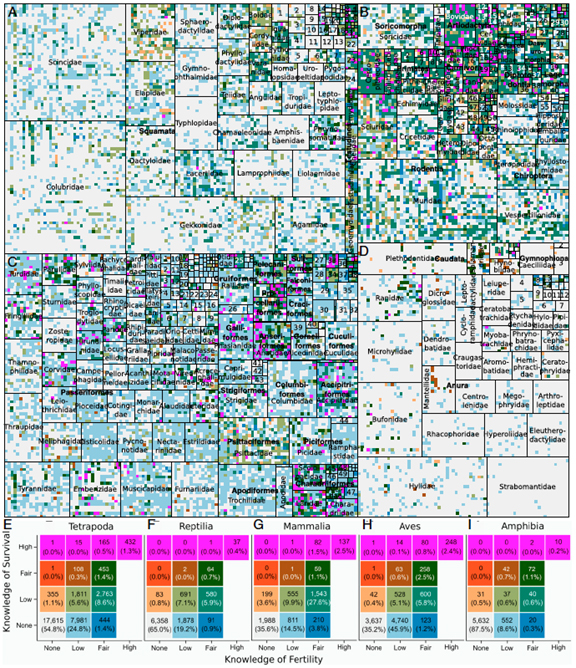Given the current species extinction rates, evidence-based policies to conserve at-risk species are urgently needed. Ultimately, the extinction of a species is determined by birth and death rates, which drive populations to increase or decline. Therefore, demographic data are essential to inform species conservation policies or to develop extinction risk assessments. Demographic information provides an indispensable bedrock for insights to tackle species sustainable management and deepens understanding of ecological and evolutionary processes. Here, a Demographic Species Knowledge Index that classifies the demographic information for 32,144 tetrapod species is developed. Comprehensive information on birth and survival was found for only 1.3% (613) of the species, and the major potential of zoos and aquariums to significantly increase our demographic knowledge was shown. informacion[at]ebd.csic.es: Conde et al (2019) Data gaps and opportunities for comparative and conservation biology. Proc Natl Acad Sci USA https://doi.org/10.1073/pnas.1816367116
https://www.pnas.org/content/early/2019/04/18/1816367116

 Las altas temperaturas están provocando que las lagunas y las marismas de Doñana pierdan agua rápidamente
Las altas temperaturas están provocando que las lagunas y las marismas de Doñana pierdan agua rápidamente




